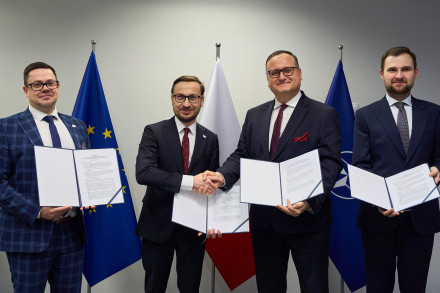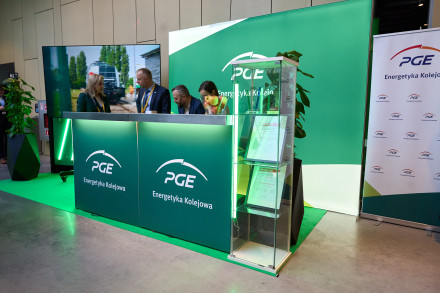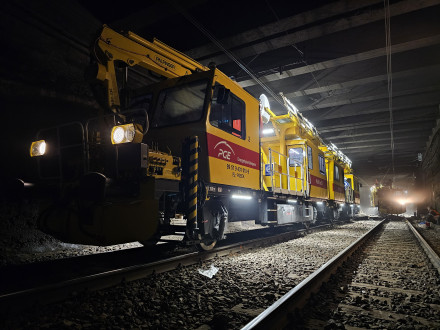RES energy for Transchem Sp. z o.o. – Letter of Intent with PKP Energetyka signed
24.08.2021, 9min read
Transchem Sp. z o.o. plans to produce green electricity for its own use. For this purpose, the carrier will cooperate with PKP Energetyka. Both companies signed a letter of intent, which initiates their collaboration on a joint model for the installation and operation of photovoltaic systems on the premises of the Włocławek-based company. It will use PKP Energetyka's experience to select efficient and innovative solutions to harness energy from the sun.
Transchem Sp. z o.o. is a Polish rail carrier engaged in domestic and international freight transport, specialising primarily in the carriage of chemical products, but also with experience in the transport of bulk materials and intermodal transport. Apart from Poland, the company transports goods across Germany as well as to Switzerland, Belgium, the Netherlands, the Czech Republic and Italy. Transchem also provides shunting services on railway sidings, along with rental, repairs and periodical inspections of tank cars and freight cars. To this end, it uses well-equipped technical and administrative facilities. The agreement concluded with PKP Energetyka is the first step for the carrier to reduce the consumption of non-traction electricity drawn from external sources. The photovoltaic systems will be built on the roofs of the buildings used by Transchem.
"We focus on modernity and development. Green energy and care for the environment is the future we want to be a part of. We are committed to reducing our own carbon footprint to make rail transportation even greener. This is a double benefit for us – on the one hand, we are contributing to the fight against climate change, and on the other, we want to generate significant savings in our current operations. We hope that our cooperation with PKP Energetyka – an entity with exceptional experience in implementing "green" energy solutions on the Polish market – will bring us closer to achieving both these goals", says Jarosław Pińkowski, President of Transchem.
The signing of the letter of intent means that the company from Włocławek joins the group of carriers which have declared their will to cooperate with PKP Energetyka in the implementation of modern solutions enabling the generation of non-traction electricity from the sun. Previously, similar agreements were also concluded by PKP Cargo, CTL Logistics, Łódzka Kolej Aglomeracyjna, Rail Polska, Koleje Śląskie and LTE Polska.
"The launch of the partnership with Transchem shows that the rail industry is increasingly aware of the need to reduce carbon emissions into the atmosphere, including when it comes to powering the infrastructure it uses. PKP Energetyka is a proven partner for this task with a unique knowledge of innovative energy solutions. We are in the process of implementing the Green Traction Substations project – by the end of the year, more than 500 of our substations will be equipped with PV systems capable of generating 3,000 MW of clean energy annually. More green energy on the railways means a higher efficiency of this mode of transport, lower operating costs and neutralisation of the impact on the climate, which is a guarantee of increased popularity of rail and its wider use in the economy. The bottom line is that we all benefit from it", emphasises Leszek Hołda, member of the Management Board of PKP Energetyka.
Transchem Włocławek and PKP Energetyka also cooperate within the Centre for Railway Energy Efficiency (CEEK). This is an initiative of the railway industry to optimise the use of electricity on Polish railways. CEEK promotes the development of recovery technologies, eco-driving, and the use of renewable electricity (RES) generation facilities on railway lands and facilities. CEEK’s plans are to reduce the sector's energy consumption by 1.2 TWh by 2030 and reduce CO2 emissions by 1 million tonnes by then. In 2019, CEEK also developed the Green Rail Programme whose implementation was entrusted to PKP Energetyka. The programme assumes that in 2030 85% of traction energy used by the rail sector will come from RES. This will translate into an additional reduction of 8 million tonnes of carbon dioxide emissions.






